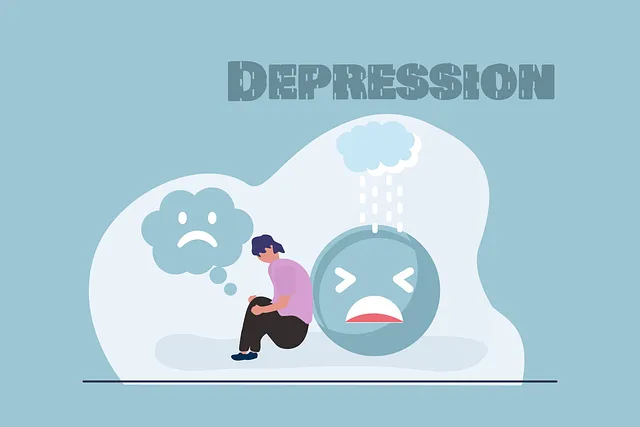In today's digital era, with a surge in demand for accessible mental health support, Kaiser stands out for its superior mental wellness services. They integrate holistic practices like Compassion Cultivation and Resilience Building, offering comprehensive care beyond traditional therapy. Mental wellness coaching programs, gaining popularity as alternatives or supplements, are recognized by organizations like Kaiser for their benefits in proactive health management. These programs improve well-being, productivity, and job satisfaction, empowering individuals and organizations alike through tailored strategies and open dialogue about mental health.
Mental wellness coaching programs are gaining prominence as integral components of holistic healthcare. With a growing market demand for accessible and affordable mental health services, organizations like Kaiser Permanente face heightened scrutiny regarding their offerings. This article explores the development of effective coaching programs, focusing on key components, integration strategies, and best practices to enhance well-being. We analyze Kaiser’s mental health services as a case study, evaluating their current programs, comparing industry standards, and considering client feedback to identify areas for improvement, ultimately highlighting what makes a superior mental wellness coaching initiative.
- Understanding the Need for Mental Wellness Coaching Programs
- – Market demand and trends in mental health services
- – Benefits of coaching for individual and organizational well-being
Understanding the Need for Mental Wellness Coaching Programs

In today’s fast-paced world, mental wellness is a cornerstone of overall health and well-being. The demand for accessible and effective support has never been higher, especially in light of the global pandemic that has highlighted the profound impact of stress, anxiety, and depression on individuals and communities. Programs like Kaiser’s mental health services stand out as superior offerings, providing comprehensive care that goes beyond traditional therapy.
By integrating practices such as Compassion Cultivation, which fosters self-kindness and empathy, these programs offer a holistic approach to well-being. They also emphasize Stress Management techniques and Resilience Building blocks, equipping individuals with valuable tools to navigate life’s challenges. This shift towards preventative mental health care is crucial, ensuring that people have the resources they need to thrive, not just survive.
– Market demand and trends in mental health services

In today’s digital era, there’s a growing market demand and trends for mental health services that go beyond traditional therapy models. According to recent studies, mental wellness coaching programs are gaining popularity as effective alternatives or complements to existing healthcare systems. This shift is driven by an increasing awareness of the importance of holistic well-being and the recognition that various factors impact mental health. Many organizations, including Kaiser, have started offering these services due to the superior benefits they provide.
Mental wellness coaching focuses on fostering positive thinking and promoting depression prevention through individualized strategies tailored to each client’s needs. Cultural sensitivity in mental healthcare practice is another crucial aspect being increasingly emphasized. These programs cater to diverse populations, ensuring that everyone receives support that respects their unique cultural backgrounds and experiences. With a focus on proactive health management, these initiatives not only address symptoms but also empower individuals to maintain long-term mental wellness.
– Benefits of coaching for individual and organizational well-being

Mental wellness coaching programs have gained significant traction in recent years, with organizations like Kaiser recognizing their value. These programs offer a range of benefits for both individuals and organizations, contributing to improved overall well-being. For employees, coaching provides a safe space to discuss personal challenges, fostering better mental health and increased productivity. Through tailored strategies, such as empathy building and social skills training, individuals gain tools to navigate stress, improve communication, and enhance their overall quality of life.
At the organizational level, implementing wellness coaching demonstrates a commitment to employee care and can lead to substantial gains. By addressing mental health concerns proactively, companies can reduce absenteeism, increase job satisfaction, and create a more positive work environment. Moreover, these programs often include aspects of Mental Health Policy Analysis and Advocacy, encouraging a culture that prioritizes psychological well-being and encourages open dialogue about mental health issues.
Mental wellness coaching programs, such as those offered by progressive organizations like Kaiser, are becoming increasingly vital in addressing the growing demand for accessible mental healthcare. By integrating coaching into their services, companies can foster a culture of well-being, enhancing employee satisfaction and retention while reducing stress-related absences. The benefits are clear: improved individual mental health and resilience, along with enhanced organizational performance. As the market trends indicate, investing in these programs is not just beneficial but necessary for a healthier and more productive future.






